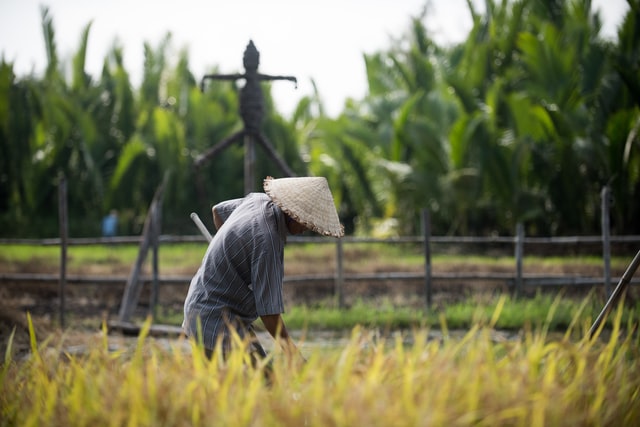Farm-level study shows rising temperatures hurt rice yields
by Mick Kulikowski, North Carolina State University
A study of the relationship between temperature and yields of various rice varieties, based on 50 years of weather and rice-yield data from farms in the Philippines, suggests that warming temperatures negatively affect rice yields.
Recent varieties of rice, bred for environmental stresses like heat, showed better yields than both traditional rice varieties and modern varieties of rice that were not specifically bred to withstand warmer temperatures. But the study found that warming adversely affected crop yields even for those varieties best suited to the heat. Overall, the advantage of varieties bred to withstand increased heat was too small to be statistically significant.
The study examined rice yields and atmospheric conditions from 1966 to 2016 in Central Luzon, the major rice-growing region of the Philippines. Rejesus and study colleagues were able to utilize farm-level data of rice yields and area weather conditions in four-to-five-year increments over the 50-year period, a rare data trove that allowed the researchers to painstakingly examine the relationship between rice yield and temperature in actual farm environments.
“This rich data set allowed us to see what was actually happening at the farm level, rather than only observing behavior at higher levels of aggregation like in provinces or districts,” Rejesus said.
The paper appears in the American Journal of Agricultural Economics.
> Source: PHYS.org



 credit: Pexel,com
credit: Pexel,com